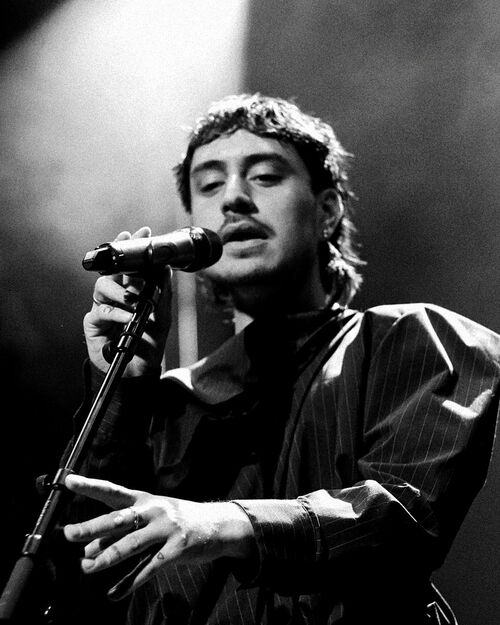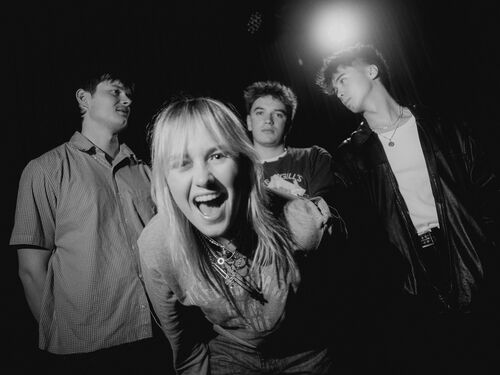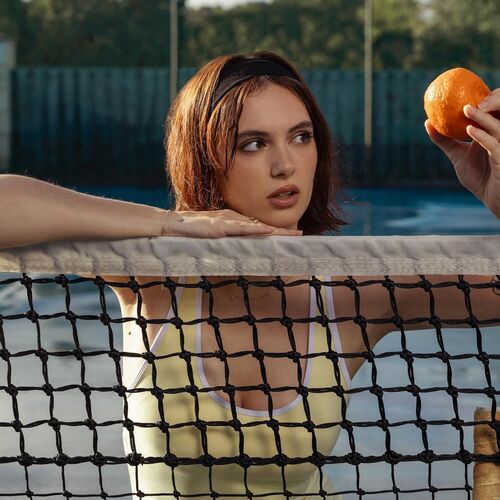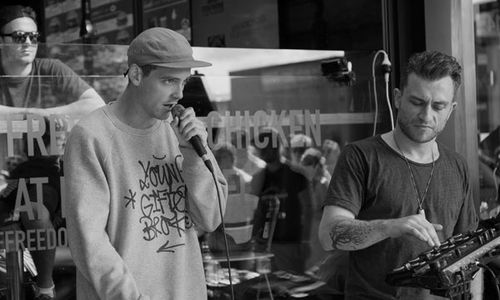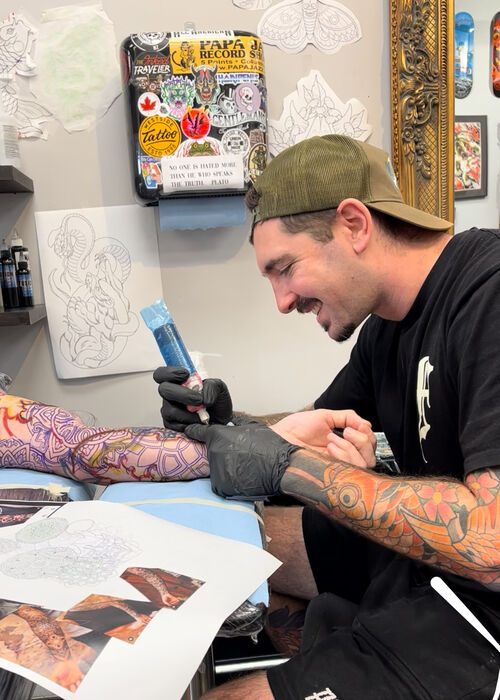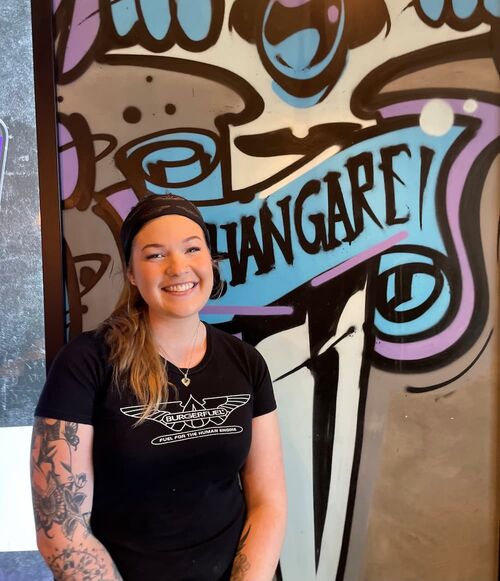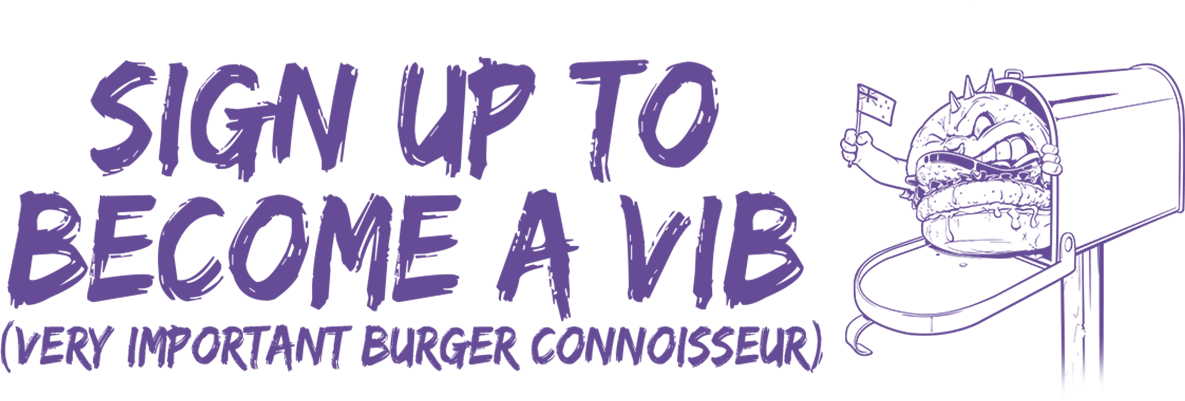BACK IN BLOOM
Off the back of a long delayed New Zealand tour, Daffodils are back at home in Auckland after wrapping up their tour on the East Coast in Gisborne. After releasing their debut EP 'Boys' in October 2019, the band was looking to kick things off with an early tour around Aotearoa, before hitting the studio and then maybe a little jaunt overseas to capitalise on their increasing popularity. But best laid plans always have a habit of changing, especially this year.

In what comes as no surprise given what 2020 has thrown up, plans were put on hold, and shows postponed. So it’s nice to have a positive conversation about something tangible that has been achieved. We talked to frontman Theo Spike Salmon about the just completed tour, before he had to head off to inspire the next generation of guitar gods wanting to learn the six-string craft.
The staggered tour kicked off in Wellington in September, before heading across uncharted waters (in this case Cook Strait) and heading south for their first South Island shows. Salmon says a highlight was a “crazy” set in the beautiful Wunderbar in Lyttelton. “I’ve never really been down there that much before. And we’ve got some mates living in Christchurch so it was nice to see them and get that full half week’s worth of shows in. It was pretty hectic.”
This was supposed to be a New Zealand tour to following the release of their ‘Boys’ EP from late 2019, but pandemics happen. And like the rest of the world, best laid plans were cast aside. Salmon says “we’ve ended up in October at the point we were wanting to be in in May. Which I guess isn’t that bad in the grand scheme of things. But it has messed with the plans a little bit.” The original plan for Daffodils in 2020 was to get back in the studio and record some new stuff and then “maybe heading over to Aussie for a bit”. But a lot has changed “in terms of how we approach what we end up doing”, he says.
Being separated for New Zealand’s first lockdown in March was frustrating for the band. “It was a solid two months with no rehearsals, no hanging out, no writing” Salmon says. “The first one I got absolutely nothing done.” But as he learned to adapt, he says the second lockdown was actually really productive. “The second one I ended up with a whole bunch of really good new songs that I liked. That was only three weeks as well.”
Looking back on the tour, we wondered if it felt different than it might have if it happened six months earlier and things were normal? Salmon agreed, saying “yeah, I think it was. I think partly, everyone is just so keen to get back to shows and go and see stuff.”
“We had no idea what it was going to be like in the South Island because we’ve never played down there before. Every single audience we’ve played to have been such nice crowds. It’s kind of weird because sometimes you go to gigs and crowds are just a bit feral, or people are absolutely blind wasted, which is absolutely fine – I have no problem with that at my shows, in fact I encourage it! But there weren’t any noticeable issues with people – no fighting. People were just generally being nice to each other which was definitely a bit of a change from previous ones."
He continues by saying that is great for the support bands too. “I’ve always found that I have a big issue of posting set times for things. I like the idea of just posting the door time and then people can infer from that when people are playing if they want to. But I find a lot of the time people will not bother coming to the support acts. I think that’s a massive shame because that stuff is often where you find the some of the coolest bands. [In Auckland] we had two great ones, we had KMTP and Carb On Carb. Keria from KMTP had a full band with him this time. His EP is quite low key, but they had this crazy, thick 90’s pavement-esque vibe to the full arrangement. And I thought this is so cool, because I would have had no idea if I hadn’t seen them like this. I think the support band thing is a really important part of live music and discovery. It was cool to see how many people turned up for those guys.”
We wanted to return to the beginnings of Daffodils and even further back to understand where Salmon and the band came from. They formed in 2016 to compete in Rockquest but most of the members have a long history with Salmon knowing bass player Louis Graham since they were five years old, before they started a band at intermediate school with drummer Isaac Keating. This continued on and off for a couple of years, before Salmon met Jade Bryham in 2015 at a The 1975 concert and forming Daffodils.
“So I guess me and Louis and Isaac were all comfortable playing together already, which probably helped quite a lot – gave us a bit of an advantage.” Salmon says “the first song we wrote together was that year [2016], then the second one we wrote was ‘Two Angels’, which sounded a lot different than it does now. So we’ve been together for almost 5 years now.”
For Salmon, his own musical journey started in primary school after his father gave him “a little nylon string acoustic” guitar to strum along to aged five. But it was not until two years later aged seven that his life changed and he started taking guitar seriously. He says “I got this really great guitar teacher through Lewis Eady at primary school. He was dope. His name was Jordy, and he just taught me whatever I felt like I wanted to learn at the time. Especially when you’re that young as well, if it feels like schoolwork you just don’t want to do it. So that beginning process of just learning songs that I like. At the time it was just Green Day and ACDC and that classic kind of stuff that kids learn on guitar. Once I picked it up from there, it was maybe a year of ‘oh I’m not sure if this is my thing’ and then suddenly that was all I wanted to do.”
I haven’t had a lesson from him since Year 11 or something. He was my teacher for a long time, like 9 years or something.”
“It was really cool having such an encouraging teacher too” Salmon says, before heading off after our interview to teach kids guitar himself. By taking this full circle, you suspect that his students will be thinking the same thing, learning from a real-life musician looking the part with his mullet.
When asked about how the music he was learning and listening to influenced him, Salmon talks about immersing himself in the world of guitar players, rock gods and mega-bands. “I wasn’t really into hip-hop back then. I really am now, but I wasn’t when I was that age. I think you go down that route of ‘I’m that quirky kid that likes Led Zeppelin or whatever’. Then I realised how stupid that was when I was like 15. Like ‘damn, it’s actually really dumb being an elitist about music’, because I used to go to bed just listening to Top 40 radio and be embarrassed about it. But now I love it. That stuff is so interesting to me, there are so many amazing pop songs out there and they have a lot to teach you about writing your own music.”
His thoughts on the relevance of music from the 1960s and 1970s are slightly controversial. Salmon explains his thought using Led Zeppelin as an example, “it doesn’t really relate that well to music now in terms of composition and what’s actually relevant to people. So making sure you’re keeping up to date with what the majority of people are actually listening to is massively important.”
What is interesting is how this relates to the Daffodils sound which reaches for the 1980s at times. Saying “I think it was more just how it ended up being.” Referring back to his previous point, Salmons says “my music tastes changed a bit. I think the idea of having guitar gods isn’t really that important anymore. That’s why I mean bands like Led Zep aren’t really that useful in terms of figuring out what you want to play. Because we don’t really put guitarists up on a pedestal like we did back then.”
“At the point I realised that Jonny Marr is my favourite guitarist was because I realised that that showmanship type stuff wasn’t as important to me as it was when I was 12 and looking up to these big almost mysterious icons. I think music is the most relatable when it’s someone you actually feel like you’re the same as. That’s a big part of music for me, I think, being able to relate on a personal level to the people who wrote it.”
Returning to the present day, what is next for Daffodils, with the tour now behind them? Salmon says they will “probably go and do some new songs in the studio.” He mentioned in a previous interview [LINK - https://www.13thfloor.co.nz/watch-13th-floor-musictalk-with-theo-of-the-daffodils/ ] with Marty Duda that the next record would be another EP. He says they are currently trying to figure out what songs should make the cut.
“It’s been a lot more complicated than I expected it to be now that we’ve got a few to choose from. I’ve written maybe like 16 for what’s going to end up as a five track thing which I’ve never done before. When you’re making them in a specific time, they’ll often end up having a kind of theme. Now I’m trying to figure out how to put the theme together with all of the songs that I’ve got.”
Previously Salmon has talked about how he loves the idea of trying to recreate the sound of sitting there and people playing together in a room. He clarifies this by saying he’s always liked it “more in terms of the energy of the recording, rather than the actual sound.” This sound also appears to be evolving as the band moves towards this new project.
“We’ve started using some track and stuff as well, which we’ve never done before. It’s always just been all four of us live. But I think it’s really going to open so doors in terms of how helpful it will sound and what kind of cool textures we can get in there. I really love layering synth parts and having multiple guitar parts. I personally love the way that now we’re putting guitar in the track. Which is totally fine with me, because I’m useless at complicated bits and singing at the same time, I’m totally happy just playing some chords.”
Salmon continues saying that using tracking will give the band a lot more control over the final sound, even if the technology makes him nervous. “But I’m constantly reassured by Isaac who’s in charge of all of that stuff, because he’s the only person that knows how to do it.”
Looking ahead over summer, Daffodils have gigs lined up at Rhythm & Vines and Nestfest on the horizon, plus a special set at River Sounds [link - https://www.everyonehurts.com/the-river-sounds-festival ] – a not for profit festival near Tauranga with a focus on mental health and wellbeing. But the rest of 2021 is still a work in progress with Salmon saying “we’re still figuring out exactly what next year is going to look like for us, there’s not a whole lot set in stone.”
And we can’t really jump straight back into doing a full New Zealand tour, because people would get a bit bored of us, until we’ve got new music out. We’re just trying to figure out how we’re going to work in terms of how soon to get the record done and stuff.”
And if life allows, Salmon says they would they still like to strike out and take Daffodils overseas. “It’s still very much part of the plan, we just don’t know when it’s going to slot into the plan. And it’s really dependant on other countries as well. Because if we want to go to the UK, that’s going to potentially take a lot longer. So we have to figure out keeping consistent music release around up until that happens. Finding alternative ways to get more of an audience in those places, so when you finally can go over there you have a decent amount of people at your shows.”
Catch Daffodils live around New Zealand this summer - dates are on their Facebook. Their EP 'Boys' is available to stream on all your favourite platforms or or vinyl from Holiday Records.


